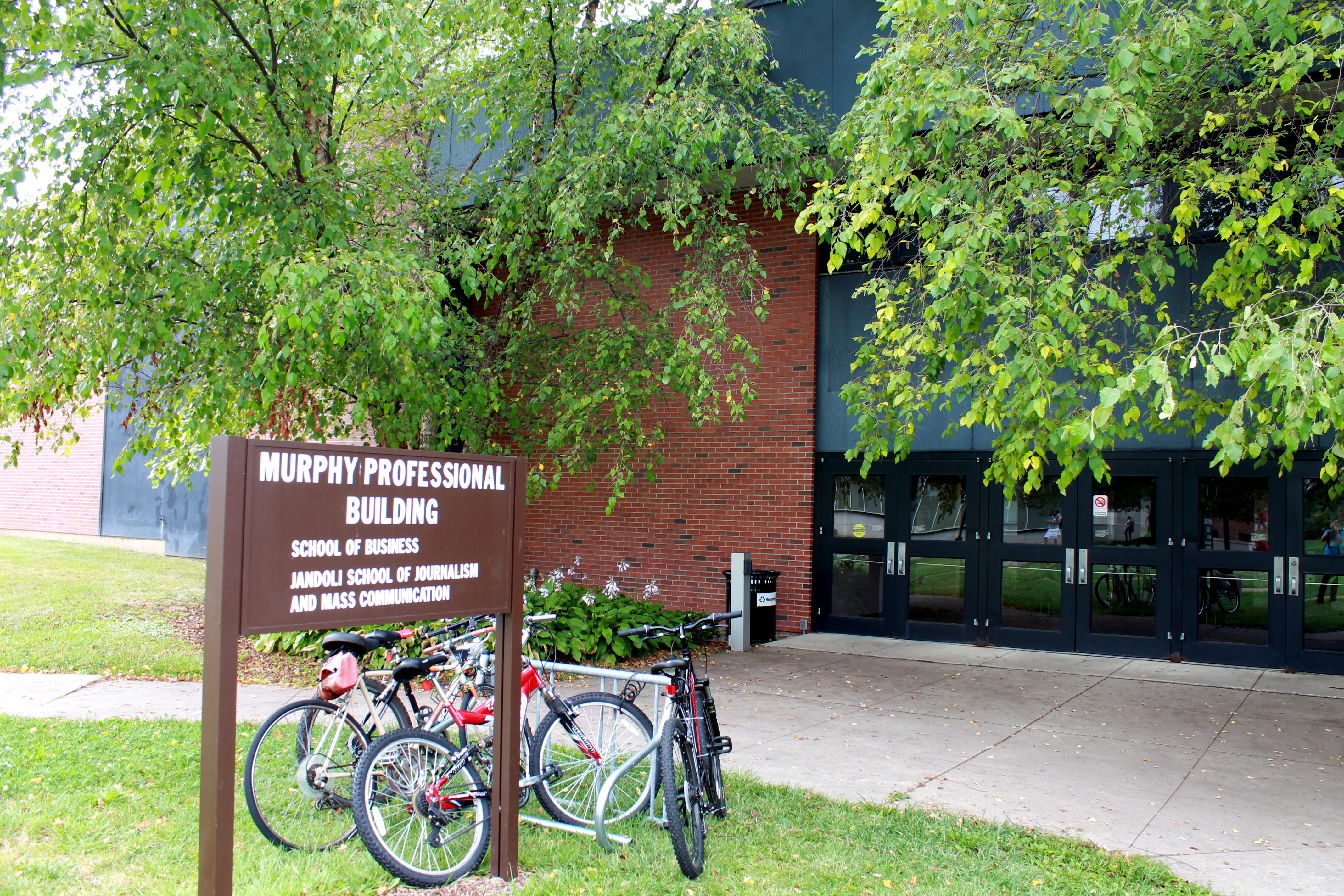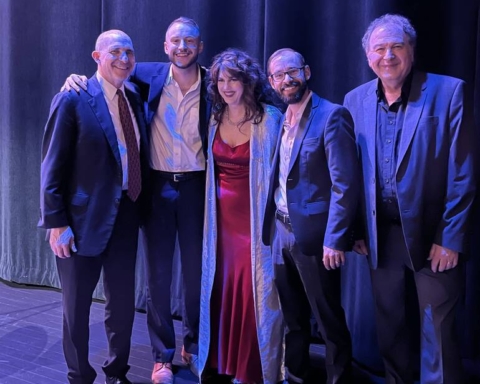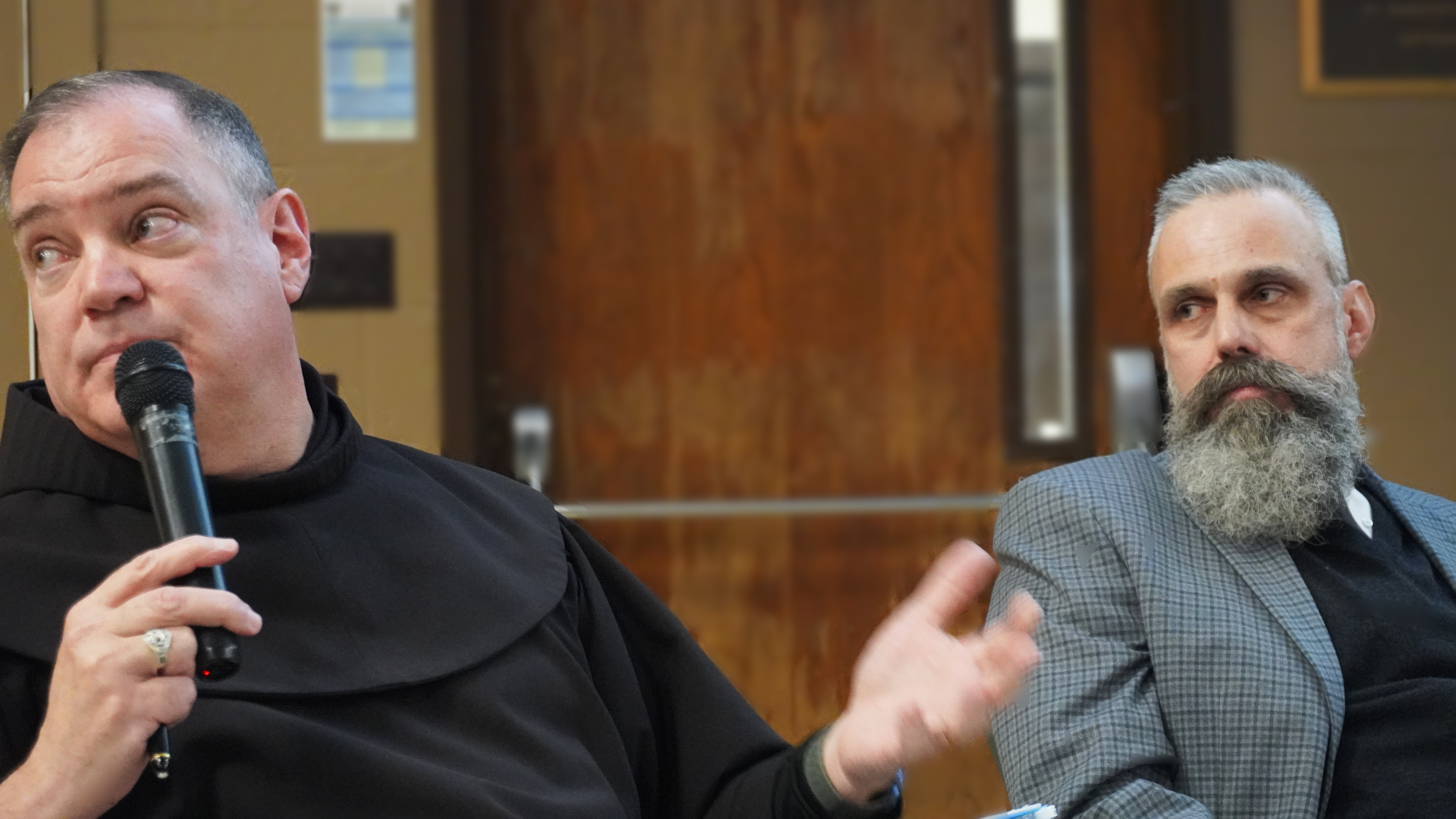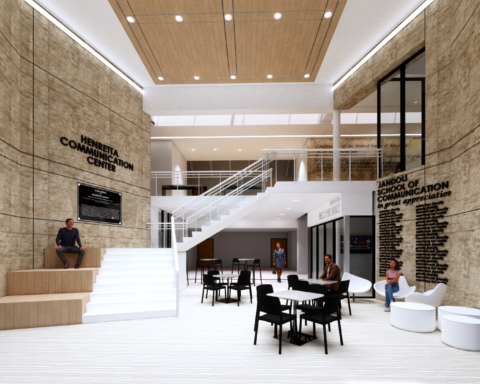John J. Murphy Professional Building
Photo Courtesy, The Bona Venture
BY ELIZABETH KAMROWSKI, NEWS EDITOR
“Over my four years as a student journalist, I was routinely told ‘no,’ or told my requests weren’t reasonable — that is if I got a response at all,” said Jonathan Walker, ‘24.
Student journalists at Bonaventure must adhere to the press request guidelines to reach nearly every administrator at the university.
Press request guidelines are rules that student media have to follow when requesting interviews. Students need to send their email requests to Tom Missel, the university’s chief communications officer, who will then forward the student’s email to the requested administrator.
Rich Williams, ‘24, said he had a positive experience when working through these guidelines.
“I had a positive experience working through press requests at Bonaventure when I reported for SBU-TV,” said Williams, the 2024 Hellinger Award recipient. “I secured necessary interviews to get a headstart on breaking stories.”
Missel said that the press request guidelines are designed to help student media reach the right source.
“The most significant [reason] being to help the student media, to ensure the people they are seeking for interviews are the best people to talk to,” said Missel. “Frequently, a student media member will have an issue worth reporting about, but they sometimes have a request for a person not familiar with the topic so I can redirect them to the appropriate person.”
Cassidey Kavathas ‘24, said she had mixed experiences with these guidelines.
“It’s good that I had the experience of them being in place before I officially entered the world of journalism outside of college,” said Kavathas, Jandoli Award winner and Hellinger Award runner-up. “However, when you’re trying to quickly turn a breaking news event, the waiting period slows you down significantly.”
Kavathas said she often worried about not getting her interviews on time.
“As a [former] editor who helped plan the pages and story ideas, there was nothing more frustrating than watching a perfectly planned week hit the bucket on Wednesday night because someone didn’t check their email after Missel connected the reporter to the source,” said Kavathas.
Specifically, Kavathas said she felt annoyed when interviewing Nicole Clark, the general manager for Aramark.
“When I worked with her in person she was great,” said Kavathas. “But any communication she has with The Bona Venture has to go through Missel to Clark, to the reporter [to finalize questions], back to Clark, to her manager, to Clark and to the reporter.”
Kavathas said this process was a waste of time.
“The [email] chain is redundant and a waste of time all for a four-word sentence about Hickey food,” said Kavathas.
Kavathas, now a politics and court reporter for The Holland Sentinel, said these stories about the Hickey and other dining services are important to students, but many of them have been dropped over the years due to communication issues with Clark.
“I know lots of Hickey stories have been dropped due to the headache that is communicating with Aramark or just never getting enough information or important information from Clark,” said Kavathas.
Aaron Chimbel, dean of the Jandoli School of Communication, said that he sympathizes with students when it comes to the press request guidelines.
“I totally understand frustration, as a journalist who was a student journalist and a professional journalist, that that’s one of the hardest and most frustrating things when you’re waiting to get information, particularly on the deadline,” said Chimbel.
These guidelines are reality, and a challenge that all students should be prepared to face, according to Chimbel.
“I think it’s also the reality, whether it’s here in college or anywhere else, you rely on other people, and you rely on other people to comment, and to do it on your timeline,” said Chimbel. “That is a challenge that journalists face in general.”
Chimbel acknowledges that students should always plan ahead when working on a story, and not leave their interviews until the last minute.
“But also for the students, it’s important to plan ahead and not wait till the day of your deadline to try to line up interviews,” said Chimbel. “That’s a big part of it.”
Nicole Clark was unavailable to comment at time of publication.
kamrowes23@bonaventure.edu








